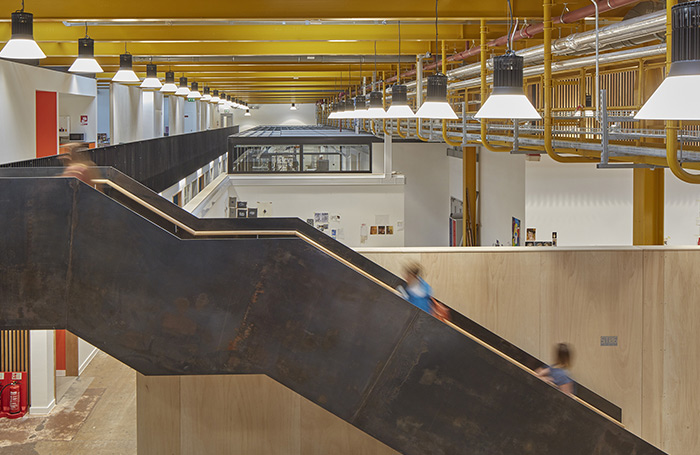
The Royal Institute of British Architects (RIBA) has today (17 November 2022) launched a new award to recognise achievement in the creative reuse of existing buildings.
The Reinvention Award will celebrate the creative transformation of an existing building and the project’s vital improvement to environmental, social, or economic sustainability. The award, championed by RIBA President Simon Allford, has been created to shine a light on the importance of retrofitting and its contribution towards achieving net zero.
The shortlist will be selected from the RIBA’s UK regional awards, which open for entries today. The inaugural winner is set to be announced alongside the 2023 RIBA Stirling Prize and Special Awards (Client of the Year, Neave Brown Award and Stephen Lawrence Prize) in 2023.
RIBA President, Simon Allford, said:
“We have a collective responsibility as architects to minimise the impact of our work on the planet’s resources and maximise the societal and economic benefits of our work. As part of RIBA’s work to champion and incentivise sustainability, we are pleased to have introduced the new Reinvention award for recognising remarkable achievements in the field. The inventive reuse of buildings is critical to reducing carbon emissions and, whilst often not the simplest solution, requires exceptional creativity and vision – I look forward to seeing some inspiring examples in due course.”
Chair of RIBA Awards Group, Denise Bennetts, said:
“It is imperative that we rethink the way we build to create a more positive, viable future. Exploring the possibilities of imaginative reuse is one of the most effective ways that we can address the climate crisis within the architecture industry, which in turn has the potential to transform how we approach the spaces we live, work, and play in.”
The 2023 RIBA Awards are open for entries until 12 January 2023. Information on the entry process and eligibility can be found here.
All 2023 RIBA regional award-winning projects will be considered for the Reinvention Award if they:
- Confirm that a project is reusing an existing building or structure
- Supply carbon and operational energy (where applicable)
- Demonstrate how the project has improved the building or structure by achieving one or more of the sustainable outcomes in RIBA’s Sustainable Outcomes Guide.
ENDS
Notes to editors:
1. For further press information contact Eleanor.Finlay@riba.org
2. The RIBA Awards have been running since 1966. No matter the shape, size, budget or location, RIBA Award winning schemes set the standard for great architecture across the country. RIBA Awards are for buildings in the UK by RIBA Chartered Architects and RIBA International Fellows. Entries are to be submitted to the region or nation in which the building is situated. Projects are judged first for RIBA Regional Awards, then RIBA National Awards; the RIBA Stirling Prize shortlist is selected from winners of the RIBA National Awards.
3. The Sustainable Outcomes Guide defines a concise measurable set of eight sustainable outcomes that correspond to key UN Sustainable Development Goals and can be delivered on building projects of all scales.
5. The Royal Institute of British Architects (RIBA) is a global professional membership body that serves its members and society in order to deliver better buildings and places, stronger communities and a sustainable environment. Follow @RIBA on Twitter for regular updates www.twitter.com/RIBA









